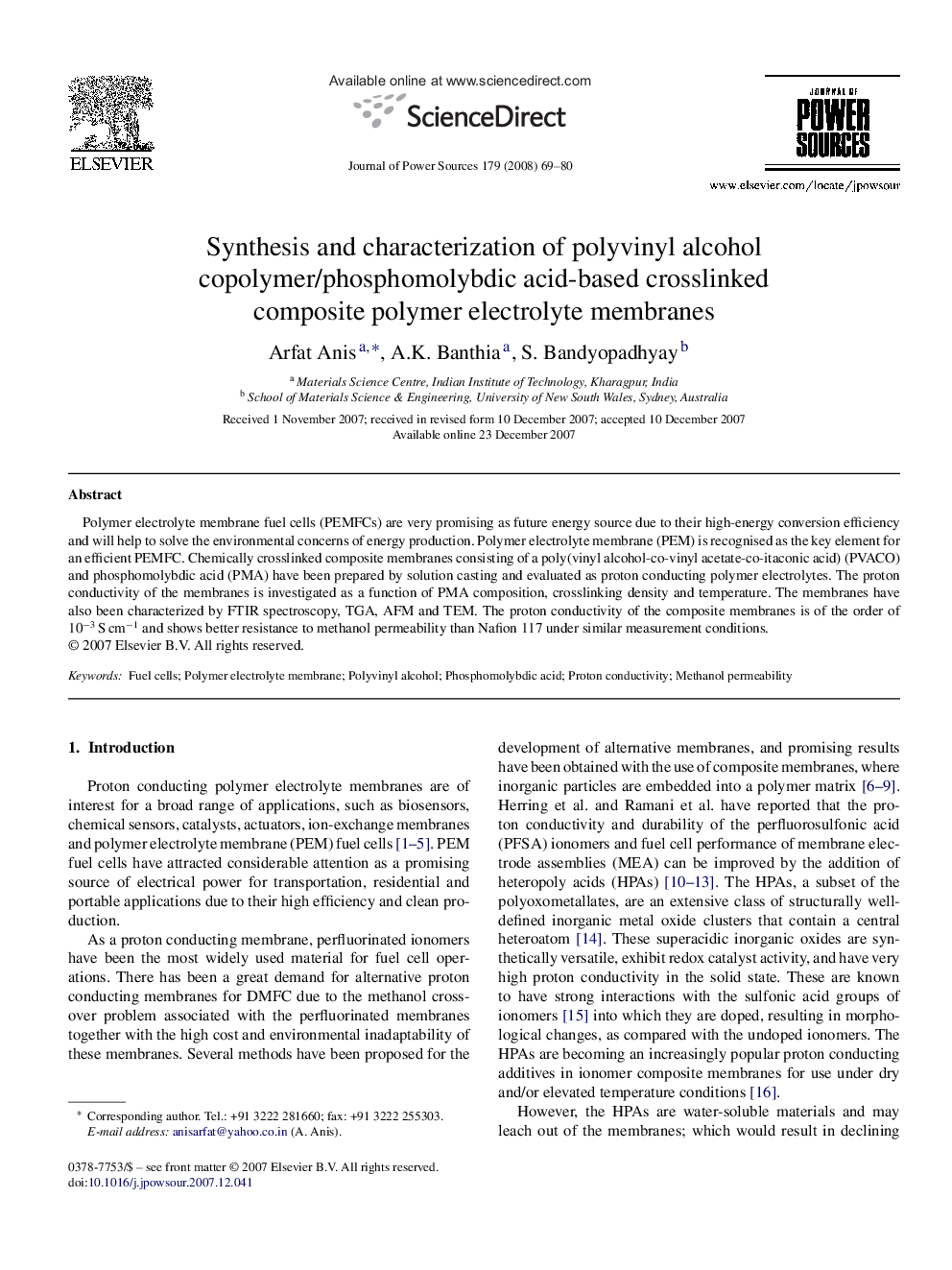| Article ID | Journal | Published Year | Pages | File Type |
|---|---|---|---|---|
| 1291407 | Journal of Power Sources | 2008 | 12 Pages |
Polymer electrolyte membrane fuel cells (PEMFCs) are very promising as future energy source due to their high-energy conversion efficiency and will help to solve the environmental concerns of energy production. Polymer electrolyte membrane (PEM) is recognised as the key element for an efficient PEMFC. Chemically crosslinked composite membranes consisting of a poly(vinyl alcohol-co-vinyl acetate-co-itaconic acid) (PVACO) and phosphomolybdic acid (PMA) have been prepared by solution casting and evaluated as proton conducting polymer electrolytes. The proton conductivity of the membranes is investigated as a function of PMA composition, crosslinking density and temperature. The membranes have also been characterized by FTIR spectroscopy, TGA, AFM and TEM. The proton conductivity of the composite membranes is of the order of 10−3 S cm−1 and shows better resistance to methanol permeability than Nafion 117 under similar measurement conditions.
